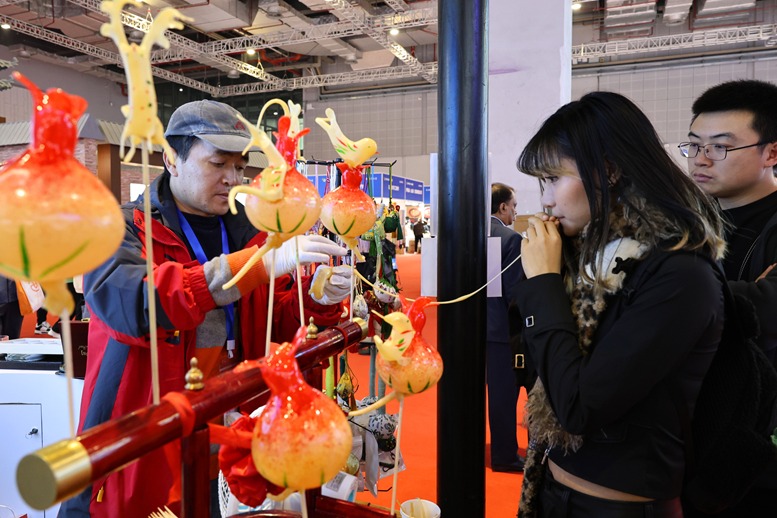Private firms to gain from nuclear power
Newly approved projects have total investment exceeding 240b yuan

The State Council's recent approval for five nuclear power projects, each allocating 10 percent of shares to attract private capital, fully demonstrates the government's determination to support the sustainable and healthy development of private enterprises, said industry experts.
The nuclear power projects were approved with a total investment exceeding 240 billion yuan ($34.20 billion), of which private capital accounts for 10 percent, which is seen as favorable for the growth of private enterprises, they said.
Among the projects, Jiangsu Xuwei nuclear power heating plant, which encompasses three units and is operated by China National Nuclear Power Co Ltd, is the world's first to combine high-temperature gas-cooled reactors with pressurized water reactors.
According to Ling Zhongguo, deputy director of the Bureau of Private Economy under the National Development and Reform Commission, a total of 10 private enterprises are participating in the projects, contributing 4.5 billion yuan as project capital, which is expected to drive over 24 billion yuan in investment by private enterprises.
Jin Xiandong, director of the National Development and Reform Commission's office of policy studies, said the move aims to continuously expand the development space for private enterprises and stimulate private investment.
Moving forward, more efforts will continue to create favorable conditions and remove entry barriers, attracting more private capital in the construction of major projects such as nuclear power facilities and railways, he said.
The construction of nuclear power stations takes a long time and requires large initial investments. Once operational, the projects can provide stable returns for 40 to 60 years, said the commission.
For example, Daya Bay Nuclear Power Plant in Shenzhen, the first large-scale commercial nuclear power station on the mainland, has generated more than 433.49 billion kWh of electricity as of June 30 this year since Units 1 and 2 were commissioned in 1994, it said.
Given the current context of green transition, China's nuclear power installed capacity is expected to grow steadily, said Lin Boqiang, head of the China institute for studies in energy policy at Xiamen University.
Investing in nuclear power projects not only brings stable long-term returns but also promotes technological innovation and industry chain cooperation, he said.
According to the 14th Five-Year Plan (2021-25) for a modern energy system, released by the National Development and Reform Commission and the National Energy Administration, China's operational nuclear power installed capacity will reach about 70 million kilowatts by 2025.
Zhang Tingke, vice-chairman of the China Nuclear Energy Association, said that nuclear power will account for about 10 percent of China's power generation structure by 2035, comparable to the current global average level. The proportion will further rise to around 18 percent by 2060, aligning with the current average level of Organization for Economic Cooperation and Development countries.
Currently, nuclear power accounts for less than 5 percent of China's electricity generation, leaving substantial room for growth, data released by the association showed.
According to the National Energy Administration, many private enterprises have long been engaged in key research and development efforts and supply chain construction in the nuclear power field.
Over the past decade, dozens of private enterprises have received significant national support for nuclear power projects, undertaking or participating in key research tasks, with 19 private enterprises serving as lead units for projects that have received approximately 150 million yuan in central government funding, it said.
As China's nuclear power equipment manufacturing sector advances, a batch of specialized and innovative private enterprises focusing on niche markets has emerged, after overcoming numerous technical bottlenecks and becoming an essential part of China's nuclear power industry chain.




































